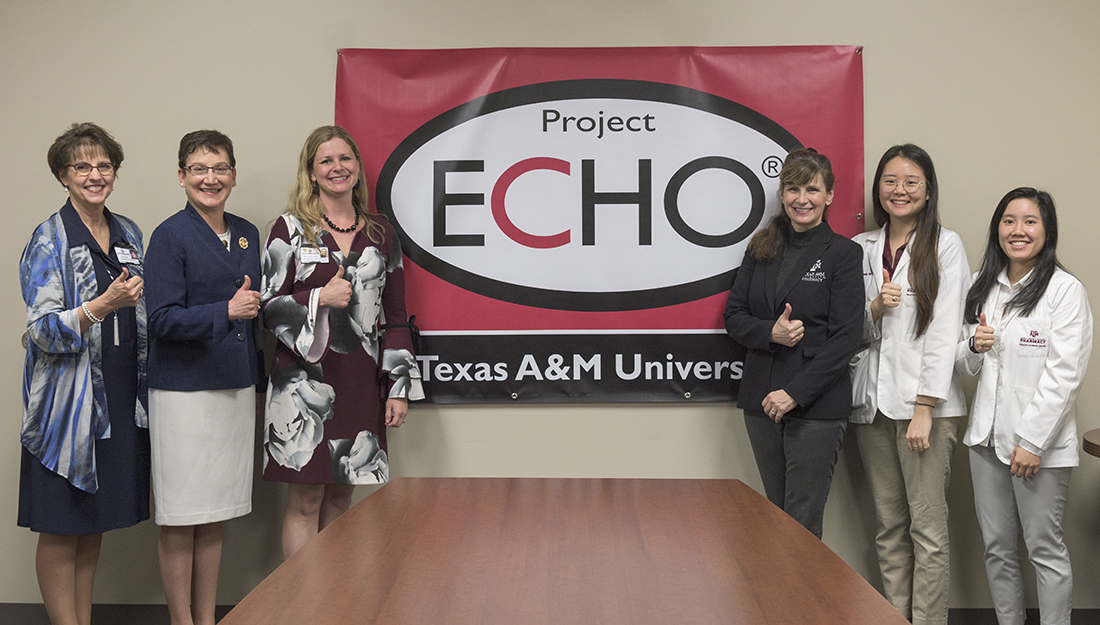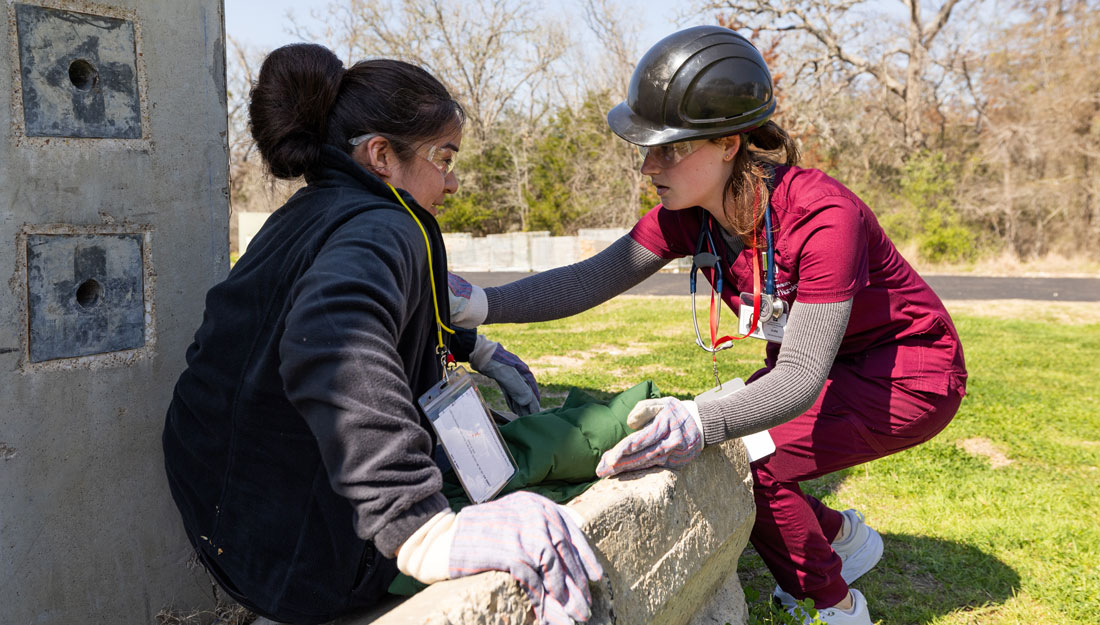- Katherine Hancock
- Featured, Medicine, Nursing, Pharmacy, Public Health, Show on VR homepage
Texas A&M is first university in Texas using telehealth to tackle opioid epidemic
New telehealth program will bring specialist and team-based health care to patients with opioid dependencies

New telehealth program will bring specialist and team-based health care to patients with opioid dependencies
Texas A&M University Health Science Center launches first Texas-based opioid-centered Project ECHO hub: Enhancing Mental Health Practice, Organization and Workforce through Education and Readiness (EMPOWER). EMPOWER will expand the role of specialty and team-based care to address the opioid epidemic by bridging the gap for rural and underserved communities with the use of technology to reach rural health care providers.
It can be an enormous hurdle for rural patients to seek advanced care for chronic or complex conditions, particularly in the case of opioid dependencies. Often it is too expensive for patients to afford specialized care, or even the trip to receive assessments. Also, the wait for these specialty appointments can take months, causing patients to suffer less-than-ideal health outcomes.
Lack of access to specialty care is a major barrier for patients, as health care providers within isolated and rural communities often do not have the resources and education to support the complex medical conditions. This often creates a perfect storm for opioid dependencies among rural patients.
EMPOWER will bring expanded health care to these patients, without needing to transport the patient to specialists, as well as educate rural health care providers on how to fight the opioid epidemic in their communities.
Why start with the opioid epidemic?
The opioid epidemic is a national emergency. In 2017, more than 130 people died each day in the United States due to opioid-related drug overdoses.
Specific numbers in Texas are harder to pinpoint. One of the problems is that Texas is considered a non-reporter by the CDC due to a current lack of surveillance data relative to opioid related non-fatal and fatal overdose deaths. The Texas A&M Opioid Task Force believes that Texas’ numbers are underrepresented, and is working with state and local resources to develop improved data surveillance.
The Texas A&M Health Science Center is home to the Opioid Task Force, an interprofessional group of scholars and practitioners, who are intent on combatting this growing public health emergency through research, education and community outreach. The group is widely educating Texas residents on the use of Narcan to reverse an opioid overdose and has also partnered with the American Medical Association to combat the epidemic.
“We need to take action and cannot wait for improved surveillance to tell us there’s an opioid problem in Texas,” said Joy Alonzo, M. Engineering, PharmD, clinical assistant professor at the Texas A&M College of Pharmacy. “It is already here. Our communities deserve tangible solutions, and Texas A&M aims to provide that. EMPOWER allows us to extend the capacity of care out beyond our walls and into these communities, providing valuable education and resources that can save lives, design recovery structures for each individual, all while educating rural health care providers at the exact same time.”
How EMPOWER through Project ECHO can combat the opioid epidemic
EMPOWER will consist of ECHO clinics to help rural health care providers across Texas address the opioid epidemic for their patients, and increase rural health care access. By moving medical knowledge, not patients, patients to can be treated where they are, rather than where specialists practice.
EMPOWER is a guided practice model where the primary care provider retains responsibility for managing the patient. Usually in telemedicine, the specialist assumes care of the patient, but with the ECHO model, the patient’s rural health care providers provides care and over time operates with increased independence as their skills and self-efficacy grows.
“This model helps patients’ primary care provider remain the partner in their health care. EMPOWER helps us expand the available health care team, allowing the patient to benefit from the expertise and experience of everyone in the ECHO clinic,” said Regina Bentley, EdD, MSN, RN, CNE, assistant vice chancellor for health services at The Texas A&M University System and clinical associate professor at the College of Nursing.
These ECHO programs will begin by educating rural health care providers on the program as well as enhancing their understanding of the opioid epidemic. Examples include educating rural health care providers on how to avoid over prescribing opioids, as well as helping them receive X-waivers to prescribe drugs that help manage and treat opioid dependencies.
“We can’t make it to every clinic in rural Texas to help every provider and every patient, but with this new partnership, we can expand our care model to bring our areas of expertise to those who need it most,” said Bentley. “By expanding medical knowledge throughout these communities, we immediately help patients and educate providers to elevate the health of entire communities for years to come.”
Media contact: media@tamu.edu


